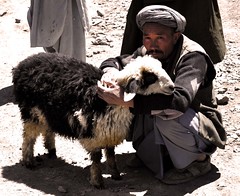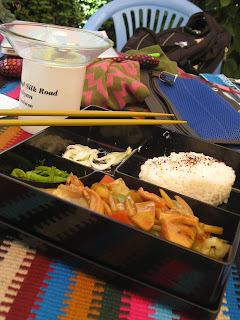
The art of political messaging is still pretty simple here - the pattern across the posters and billboards I've seen is candidate photo + name + party affiliation (99% say "independent") + ballot order + ballot symbol. Some include a slogan, but many do not. The name of the game seems to be simple recognition, which is logical enough given that there are over 600 candidates running for 33 open and 9 women's seats in Kabul province.
As the title indicates, this post exists solely to indulge my own interest in the technicalities of the election process. If voting systems bore you, please feel free to skim the photos and move along... but actually, the Afghan electoral system's quirks make for more compelling reading than you might otherwise guess.

As mentioned above, there are over 600 total candidates running for 42 seats across the whole of Kabul province (estimated population 4 million). Unlike U.S. House districts, though, the province is not subdivided into single-member districts - all 42 will be elected at-large from the province. What's more, each voter can choose only one candidate on his or her ballot. As a resident of Kabul, therefore, I get a say in only one of the 42 people who will represent me - and with hundreds of choices, the probability that the person I select will lose is quite high. The system is called the single, non-transferable vote (SNTV), and while it's simple enough to use, it's incredibly strategically complicated for both candidates and voters to navigate.

First, from a voter perspective, it's very important to choose my candidate carefully. If I vote for someone who's already very popular, I waste my voice on a shoo-in; but if I choose a nobody running in 643rd place, I waste my ballot on a hopeless cause. The trick is to vote for my preferred candidate from among the middle of the pack, hoping to nudge someone from 43rd place into 39th - even if this person is perhaps only my 3rd choice - these are the seats are decided by a tiny number of votes. The fun part is that there's no polling information, so even guessing which candidates are safe and which are competitive is a game of information-gathering.
Adding to the fun, the Afghan Constitution sets aside a fixed number of seats for women, but does not hold a separate election for these seats. When the votes are counted, the top 9 women will receive seats, even if the 9th is actually in 253rd place. Perversely, this reduces the incentive to vote for a female candidate, because the electoral bar is so much more easily cleared.

From a candidate perspective, if I want to form a political party around my shared views with others in the race, it's incredibly difficult to do so. If some few of us were to band together on a common platform and pool our efforts to gain votes over the other several hundred, we'd need first to guess at how many supporters would back our group, then nominate exactly the right number of candidates to take advantage of that voting pool - too many, and our votes get divided too thin and we win no seats. Too few, and all our candidates win, but we'll have sacrificed additional seats we could have gotten. Then we have to work to divide our supporters' votes evenly among the candidates (in Taiwan, back when SNTV was in use there, political parties would print ads telling supporters which candidate to vote for based on their birthday - their politicians split the vote into calendar-segments).
In reality, what happens is that political parties don't really form, and the provinces break into small parochial constituencies rather than uniting behind more national platforms. Single, non-transferable voting systems are rare enough, and watching elections play out here, it's easy to see why.
Coming soon: a related post on adapting campaigning and balloting for a country with a low literacy rate, translating campaign billboards, and other elections fun.















